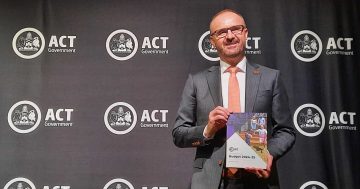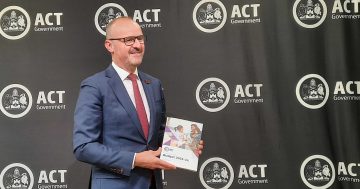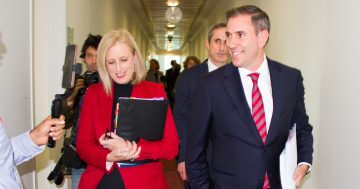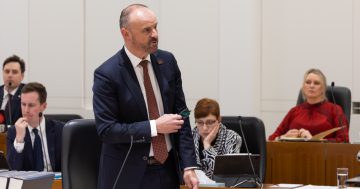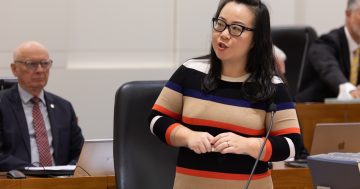
The interest on the ACT Government’s debt will be nearly $1 billion a year – more than three times what we spend on housing. Image: Ratpack223.
I received my rates bill yesterday. I appreciate the colourful pie chart showing ‘where our money goes’.
It’s clear that most of it is spent on health, education, roads and municipal services. Yes, the bill has increased again, but I’m happy to contribute to the cost of living in our wonderful community. Canberra is a fantastic place to call home!
However, the pie chart doesn’t reveal the whole story: we are spending more than we earn, and we must pay interest on our debt. By 2027-28, our revenue is forecasted to be $9.6 billion, our spending $9.7 billion, and our debt $12.5 billion.
The interest on this debt will be nearly $1 billion – more than three times what we spend on housing. Canberra should be a good place to call home for everyone who lives here, including those who can’t afford a good home.
I’m concerned about how much more my rates will increase. Have I budgeted enough to cover future increases in retirement, or will I leave a deficit for my grandchildren instead of an inheritance? The more I understand the state of the ACT budget, the more nervous I feel. Ignoring the problem and continuing to add to the parliamentary agreement wish list during elections is not an option.
I have worked hard to live within my means, making choices and lifestyle sacrifices without neglecting those less fortunate. Those same principles of good household budget management should apply here. We all need to contribute to balancing our collective budget.
Every front-line worker – nurses, teachers, emergency service and transport officers – could offer countless solutions to reduce financial waste or increase efficiencies. Middle managers and policy officers know which programs and services need to be cut, but political will is needed to eliminate sacred cows. And the community must be involved.
During drought years, we reduced our water consumption as a community. Our individual actions had a collective impact. What can we do individually to reduce the cost of government services? What behaviours and actions can we take that will have a collective impact?
Applying this approach to housing, what can we do to make sure Canberra is a good place for everyone to call home?
A great example of rethinking how we use our limited funding and resources is Axial Housing. This program, based on Housing First Principles, provides wrap-around support and permanent accommodation to people sleeping rough with high and complex support needs. Marymead Catholic Care and the Community Services Directorate collaborated to reposition existing service funding and resources without seeking more budget funding.
Working together, government, community and business can find innovative solutions, but are we willing to pay the price of collaboration? Is the Canberra community and the government willing to go the extra mile? Do we have enough trust to reach beyond our sector silos to have a conversation that asks, ‘what if we?’
If we don’t start making tough decisions now, they will be thrust upon us in a process of creative destruction where, out of sheer desperation, we will be forced to innovate in an environment of austerity.
And those who can’t afford a good home will probably lose out again.
Louise Gilding is a Senior Associate at Purdon (and former ACT Government official).













